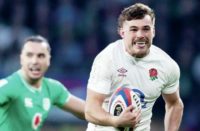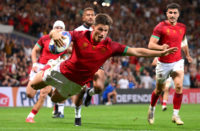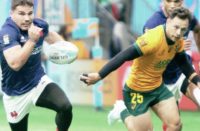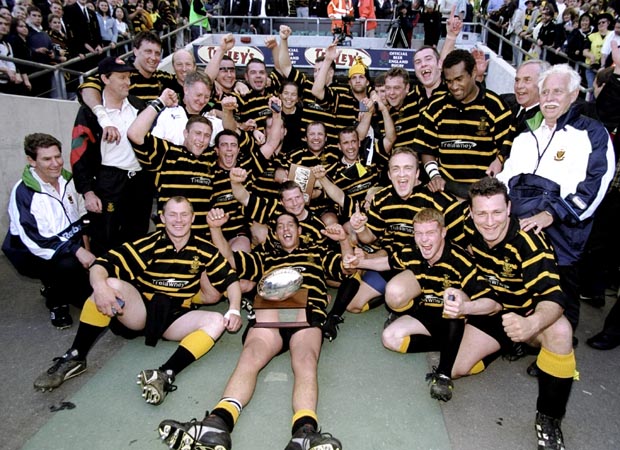 So the European legislators, God bless, have finally caught up with the rugby world and officially recognised Cornwall as being very different to the rest of England boasting a separate culture, language and identity of its own. Guys, tell us something we humble egg-chasers and rugbyheads didn't already know!
So the European legislators, God bless, have finally caught up with the rugby world and officially recognised Cornwall as being very different to the rest of England boasting a separate culture, language and identity of its own. Guys, tell us something we humble egg-chasers and rugbyheads didn't already know!
Cornish rugby culture can never stand accused of being mainstream or lacking identity. Fiery Celts in the land of straight laced Anglo-Saxons, dreamers mingling with iron-willed pragmatists, talented singers in a rugby nation that struggles pitifully to get beyond the second line of Swing Low and the second verse of Sloop John B. But Cornwall rugby's uniqueness comes at a cost. Distant cousins on the Western Fringe – overlooked, neglected and effectively a world apart.
From last week, under European legislation Cornwall now has “minority status” and among other things this badge of honour apparently means “appropriate measures must be taken against acts of discrimination” and that the “Cornish views must always be taken into account”. Political and economic strictures of course but wouldn't it be bloody marvellous if they could belatedly be transferred to the rugby field as well.
Cornwall's rugby folk who have regularly worked up a healthy thirst by slagging of various England selectors of old who laboured under the misapprehension that the Great Western line ended at Exeter St David's. Any compilation of the best uncapped England XV of all time will invariably include three or four unheralded – and simply unseen – sons of Kernow.
Young Jack Nowell, the son of a Newlyn trawlerman, is the latest Cornishman to play for England but his caps have been earned with Exeter Chiefs where Luke Cowan-Dickie is also seeking fame and fortune. Phil Vickery, Graham Dawe, Olly Barkley, Trevor Woodman, Andy Reed, Tom Voyce, Martin Haag and others were also forced to evacuate eastwards to further their careers.
How Dawe, the current Cornwall coach, won only four England caps is one of modern day rugby's enduring mysteries, nay scandals, and remains a festering sore. It must be something to do with hookers because Penryn hooker Roger Harris sat on the England bench more than 20 times. Mind you he was normally up against John Pullin and even diehard Cornishmen will doff their caps in his direction.
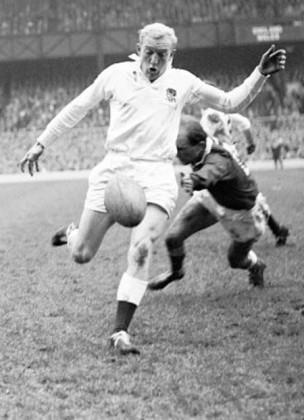
Richard Sharp, the greatest of them all, was capped out of Oxford University and Wasps although his collection of shirts hangs proudly in the Redruth club where he learned the game as a youth and young man. Sharp, so dashing that novelist Bernard Cornwell named his Napoleonic hero after the blond fly-half, recalls the double whammy of playing for England as a Cornishman: “You were immensely proud and privileged to play for England but that emotion was heightened because you really were representing Cornwall as well.
“One of my fondest rugby memories was driving from Twickenham to the post-match banquet at the Hilton in London with my girlfriend, soon to become my dear wife. I rather fancy it was after a good win against Ireland in 1962. Anyway a bus drew up alongside and it was rammed to the gills with Cornwall supporters in the county colours. Trelawny's Army, or at least a detachment thereof, up in town for the match.
“They had recognised the two of us, in fact a number of them were friends, and proceeded to provide an escort to the Hilton singing all of our wonderful Cornish rugby songs at full volume – Trelawny's song which is the Song Of The Western Men – plus Lil Lize, Lamorna and all the others. I was there to play for England and they shouted themselves hoarse for England but at that moment it felt a very Cornish occasion as well. Marvellous.
“Playing for Cornwall was a very big thing during my career with full houses at Redruth and Camborne. The County Championship was Cornwall's chance to be seen and heard in many respects – not just rugby – and it was one of my few regrets that I never reached a final when representing the county, just two semi-finals.
“I well remember the excitement of receiving the letter from the Cornwall Union on what seemed like parchment informing me that I had been selected to make by debut against the British Police. Of course it was a huge honour for the family as much as anything.
“I was just about to join the Marines in Lympstone for my National Service but received permission to play. Unfortunately towards the end of the game I dislocated my shoulder making a tackle and when I duly presented myself at Lympstone the medic took one look at me and ordered me back home for a month. My family, of course, were delighted.
“We had some marvellous players in Cornwall. Bill Phillips, the Redruth forward, was my all-time rugby hero from childhood, absolutely wonderful player and a great athlete but alas never capped.
“His was the autograph we all wanted as young boys. I played with and against many of rugby's best players and he bore comparison with any of them. And there is a picture down at the Redruth clubhouse of four us from the team appearing at an England trial one year but unfortunately I was the only eventually to find favour.”
One of the few players in living memory to win an England cap out of Cornwall was Camborne full-back John Collins who won three caps in 1952. As Collins once told me: “When I first got picked against Ireland, it was all very controversial and didn't the old King himself – George VI, God rest his soul – die the very next day. Must have been the shock of a Cornishman being selected, well that's what we all said.
“Well the game was re-arranged for later in the season and I was left sweating to see if I was still in favour for the next match, up at Murrayfield. I survived the cut and we beat the Scots before the re-arranged Ireland match. That was a strange one, dreadful Arctic weather and snowstorms on the last Saturday in March. It was so cold that our captain, Nim Hall, ordered us back into the changing rooms at half-time, the first occasion that had happened in an international. A hot cup of tea and a nip of something strong saw us scrape home 3-0.
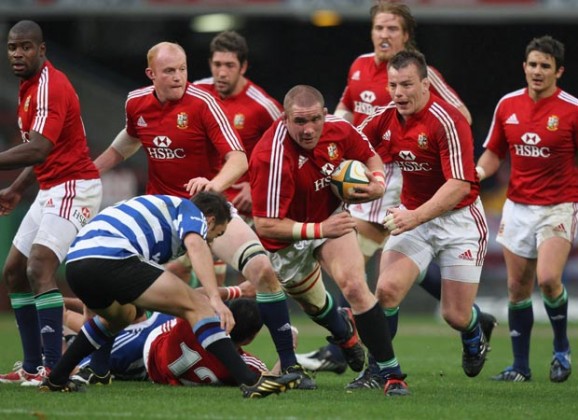
“We beat the French in Paris the very next week, but that was it for me, three matches and three wins. My knee went bad the following season and, though Cornwall arranged for me to see Denis Compton's surgeon in London, it never really came right again. Not for rugby anyway. Of course I should never have played for England. I used to charge 3s 6d for my journey from Camborne up to the ‘Midlands' – Truro – to catch the Paddington train. Any fool knew it was only 3s. Disgraceful.”
Cornish rugby has always had a unique salty flavour with every club match effectively a local derby and every county match a quasi-international with caps awarded and much waving of St Piran's flag. The team's motto is Fethy po fyliel an gwarry ha tra nahen, which for those not fluent in Kernewek translates as: “Win or lose, the game and nothing else.” Or as Baron de Coubertin once proclaimed: “It's not the winning that counts but the taking part.”
I know one or two Cornwall forwards who might beg to differ on that.
There are even those who think the Cornish may have invented the game, well everybody else has laid claim so why not? Alan Gibson, in his autobiography A Mingled Yarn made a direct connection between Cornwall's love of rugby and the ancient parish games of wrestling and hurling that existed for centuries before the authorities up in London would have us believe rugby officially began: “In Cornish hurling, the object was to take the ball in the hands and run with it, just as William Webb Ellis is so dubiously said to have done, and place it in the goal, which was probably the churchyard of the next parish,” claimed Gibson, off his long run.
“The foundation of the game was the scrimmage. Thus two essential elements of rugby were there, scrimmaging for the ball and running with it, long before rugby was formalised.”
Cornwall's County Championship winning team of 1908 was among their best ever, beating hot favourites Durham in the final while later in the year they were asked to represent Great Britain in the London Olympics at White City against the touring Australians, a game that perhaps didn't see Cornwall at their best.
A sight-seeing trip around London that morning and a decision to accept an invitation from the Cornish MPs to dine at the Houses of Parliament before the game was possibly not the best preparation for such a game but, not for the first time, Cornwall felt a need to fly the flag and make their presence felt.
Missing from the Cornwall team that day was probably their best and most controversial player of the era – Frederick Stanley Jackson – and the jury is still out as to exactly who the outstanding backrow forward was and where exactly he came from. A proper Cornish mystery with the case file still open.
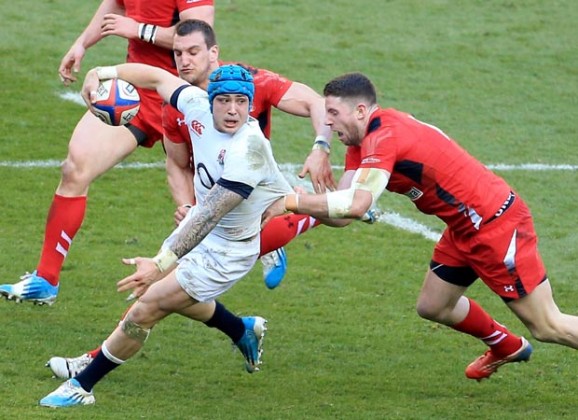
Jackson missed the Olympic call-up because he was on tour with the Lions in New Zealand, where he was considered the tourists' best forward before he was dramatically recalled by the RFU to be urgently investigated over allegations of professionalism. Jackson duly sailed from Wellington to Sydney on the good ship Maitai but, for whatever reason, decided he could not return to Cornwall and slipped back to New Zealand unannounced to marry a Maori woman he had met on tour.
They had four children, one of whom, Everard, became a noted All Blacks prop.
The Lions tour brochure had confidently reported that Jackson was born in Camborne and educated at the Camborne College of Mines, but there are no records to that effect. The Manchester Evening News reported that he was a former professional with Swinton, born in Wales under the name of Gabe and educated at Monmouth, who made a new life for himself in Cornwall. But again there are no records substantiating this.
As Sharp alluded to earlier there is a great singing scene associated with Cornish rugby, which is unique by English standards at senior level unless you discount the London Welsh and London Irish clubhouses.
And never were those songs heard to more poignant effect than on Sept 11, 2001, when Rick Rescorla, a chief security officer at the World Trade Centre in New York, but a proud son of Hayle and life-long rugby man, evacuated over 2,000 employees of Morgan Stanley from the tottering second Tower. To keep morale high – his and theirs – he belted out those favourite Cornish rugby songs on his megaphone. Grateful survivors particularly remember Going Up Camborne Hill – the rude version – for some reason.
Once heard never forgotten. Rescorla was last seen alive on the tenth floor shortly before it collapsed.
A rugby community full of big characters. Did I mention that comedian Jethro played for Penzance Pirates over 100 times before turning his post-match clubhouse routine into a professional act? But Cornwall remains out of sight and often out of mind. You can fly to New York from London quicker than you can catch a train to Penzance.
So perhaps it's time for Cornwall to start courting their new Brussels mates. Rugby in Cornwall needs a Premiership side – everybody knows that – and for that to happen the longheld dream of a new 15,000 “national” stadium must become a reality. Thus far sticking pins in your eyeballs would be marginally less painful so it's time for Cornwall to by-pass the dithering authorities in Truro and half-wits in Westminster and head straight for St Pancras and Eurostar.
If the Eurocrats are clever enough to recognise that Cornwall is a ‘minority' and special case it would surely be hypocritical in the extreme for them not to support, financially, such a worthwhile and desperately needed cultural project. “Cornish views must always be taken into account”.
And if it's culture and colour they want bring it on. Have they seen Trelawny's Army and the Falmouth Marine Band in full cry with the bit between their teeth?
Brussels be warned.


